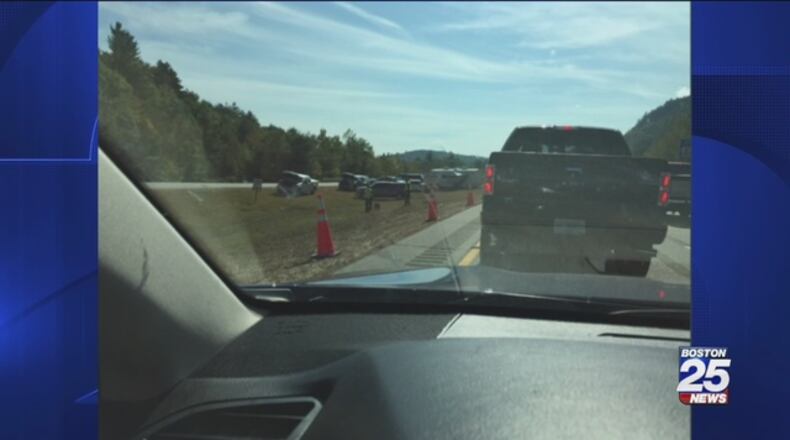On Wednesday, U.S. Customs and Border Patrol agents in Woodstock spent the day stopping every car traveling on I-93 southbound at an immigration checkpoint.
It’s the second time in as many months that drivers on 93 south have been stopped in their vehicles and asked questions about their citizenship. During the last operation in August, 25 people were detained, three of whom were minors. But the surprise to some is that it is happening 75 miles away from the Canadian border.
“There hasn’t been a checkpoint operated by the border patrol in that spot for the last five years, but we were told by the border patrol agent that following an executive order from the Trump administration they are going to increase the frequency of these stops,” Todd Bookman, reporter for New Hampshire Public Radio said.
Boston 25 News asked border patrol about the checkpoints and why they’re happening so far from the border.
They sent a statement which reads in part: “… several sections of the Immigration and Nationality Act, give Border Patrol agents broad law enforcement authorities, including the authority to question individuals, make arrests, and take and consider evidence.”
(Scroll down to read the full statement)
While bookman says there hasn’t been significant traffic backup resulting from the checkpoints, it has certainly raised emotions on both sides.
“There’s people that strongly back the president and his agenda, and we hear the exact opposite who say this is an invasion of privacy and folks who are living here undocumented but perhaps not violating any laws are now under permanent threat,” he said.
Customs and border patrol have not released numbers on the number of arrests or detainments from this checkpoint.
At the last checkpoint in August, all illegal contraband seized came from legal residents.
Full Statement from Customs and Border Patrol:
Border Patrol immigration checkpoints are a critical tool for the enforcement of our nation's immigration laws and are part of our defense-in-depth strategy to accomplish the border security mission. Although most Border Patrol work is conducted in the immediate border area, Section 1357 of Title 8 of the United States Code, along with several sections of the Immigration and Nationality Act, give Border Patrol agents broad law enforcement authorities, including the authority to question individuals, make arrests, and take and consider evidence.
At a Border Patrol checkpoint, an agent may question a vehicle's occupants about their citizenship, place of birth, and request document proof of immigration status, how legal status was obtained and make quick observations of what is in plain view in the interior of the vehicle.
During the course of the immigration inspection, if an occupant refuses to answer an agent's questions, the agent may detain the driver for a reasonable amount of time until he or she can make a determination regarding the occupant's immigration status. CBP is committed to the fair, impartial and respectful treatment of all members of the trade and traveling public, and policy prohibits the consideration of race or ethnicity in law enforcement, investigation, and screening activities, in all but the most exceptional circumstances.
While running immigration checkpoints agents will sometimes encounter subjects with illegal contraband. In these instances, we will work with our state and local partners to mitigate the case accordingly.
About the Author

